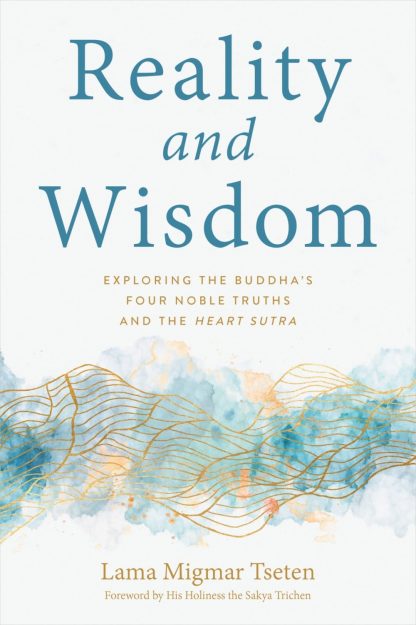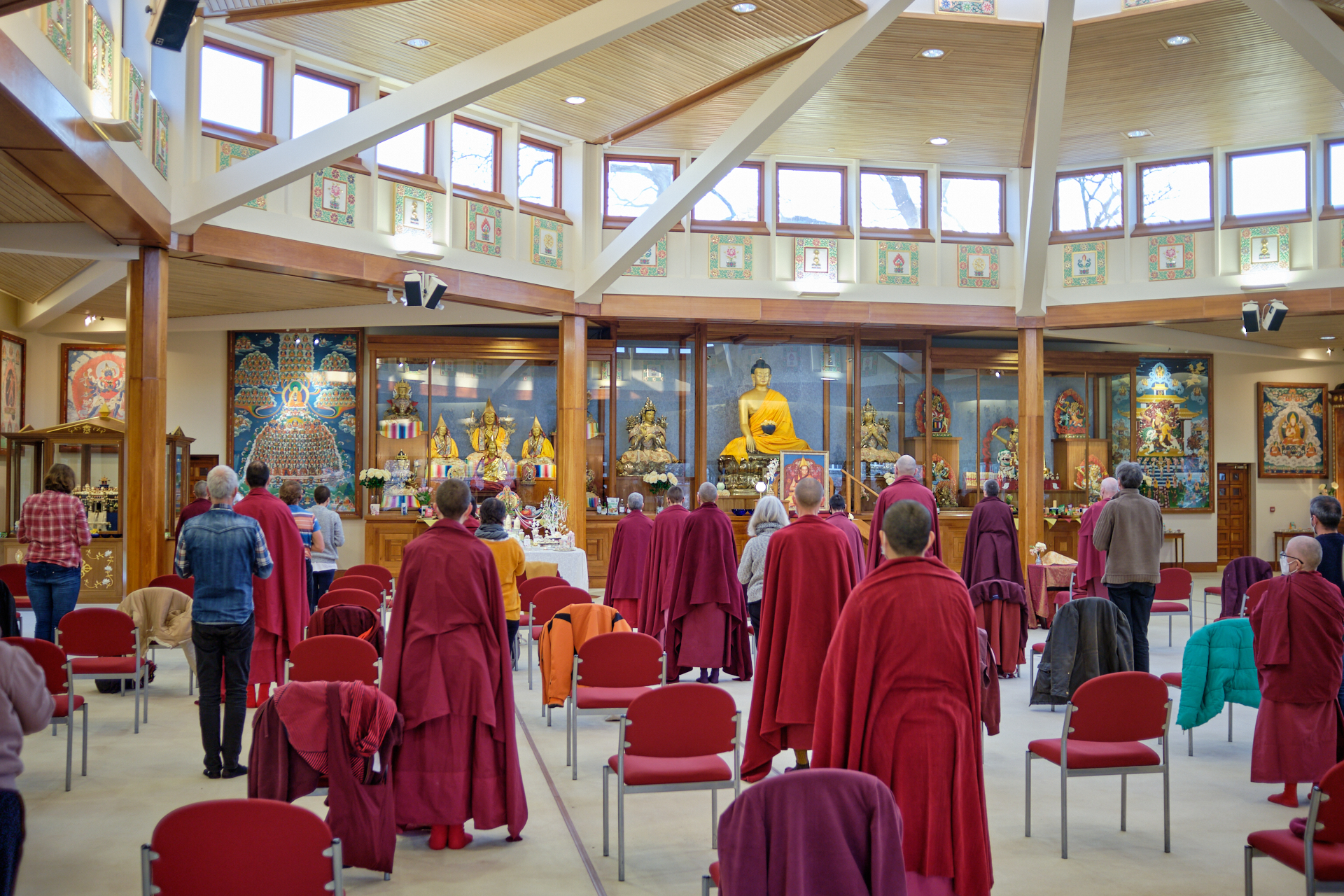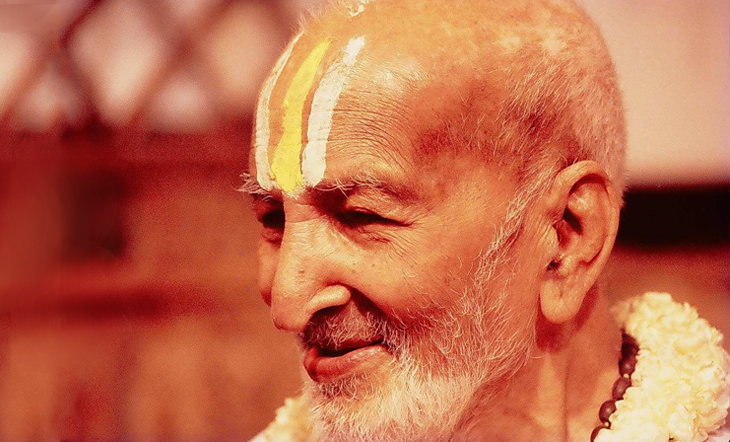The Path Beyond Desire
How discipline, meditation, and wisdom lead to uncovering our innate purity and true nature. The post The Path Beyond Desire first appeared on Tricycle: The Buddhist Review. The post The Path Beyond Desire appeared first on Tricycle: The Buddhist...

How discipline, meditation, and wisdom lead to uncovering our innate purity and true nature.
By Lama Migmar Tseten Oct 18, 2024 An altar at the Sakya Institute for Buddhist Studies.
An altar at the Sakya Institute for Buddhist Studies.Desire is the strongest emotion in our lives as human beings. All food that we eat is based on desire. Everything we want to look at or listen to, everything that we want to touch or consume in any way, is based on our craving and attachment.
In the Abhidharma it is said that since our desire is so strong, and since our attachment to sensual objects is so intense, meditation can be very difficult at first. We can all observe this if we try to go on retreat. When we leave all the physical comforts of our homes, it can be quite challenging. Just being with ourselves without any of the objects we are attached to can be quite frightening at first.
All we bring on retreat are our bodies and our minds. We begin to see how dependent our lives are on other objects. We miss our friends. We may miss our television programs. We miss our favorite music. We crave our favorite foods. For the first time we become aware of how dependent we are on all these outer objects.
The more dependent we become, the weaker we grow. Whenever one of those dependencies is taken away, we feel so restless. That is why the Buddha taught discipline.
Discipline allows us to follow the natural laws of karma. We refrain from killing. We refrain from stealing. We change our behavior and habitual patterns and find much greater peace in our lives. When we experience the peace of living according to natural laws, then so many positive qualities begin to grow inside us.
The more discipline we have, the more meditation we have. The more meditation we have, the more wisdom we cultivate.
If we ignore the natural laws of karma, our suffering will increase. If we kill other living beings, our karma will become very heavy. We will have more enemies. We can see this vicious cycle illustrated by stories about the Mafia. The bloodshed and the family feuds get passed down from generation to generation. Violence begets more violence. People keep on killing each other in order to get revenge. There is no end to this cycle. When you have that heavy karma, you live in total insecurity. You are always scared for your life. You are always expecting to be attacked.
Here in the desire realm, in order to free ourselves from desirable objects, we have to undertake training in discipline. When we have more discipline, then our meditation practice will become stronger.
Without discipline, meditation will be very difficult. Our minds will always be busy. Even if we sit in a meditative posture, our monkey mind will still rebel. Our thoughts will race after desirable objects or fixate on destructive emotional states. Our thoughts become filled with inner chatter, or our minds get very sleepy and spaced out.
The more discipline we have, the more meditation we have. The more meditation we have, the more wisdom we cultivate. These three trainings are interdependent in this way.
Our lives have started with ignorance. For this reason, wisdom training is needed as an antidote. We have lived countless lifetimes cultivating patterns of addiction and attachment to objects. We need the training of discipline as an antidote to desire.
In the graduated path, the first step is the discipline required to overcome desire. The next step is the meditation required to overcome anger. Only after those two trainings can we begin to realize wisdom.
The methods of training may be different between Theravada, Mahayana, and Vajrayana Buddhist practitioners, but the basic practice is always divided into three trainings. This is because the same three destructive emotions operate in the lives of all practitioners.
Once we accomplish all three trainings and come to the highest level of realization, then we realize cessation, which is nirvana. We must remember that this is not really an achievement. Enlightenment is not an outer achievement based on accumulated trainings.
Enlightenment is not something we create. That state has always been there infinitely inside us.
Enlightenment is much more like cleaning a dirty cloth. We may work very hard to get the dirt out of the cloth. We may think that the newly cleaned cloth is wisdom we have gained. In actuality we have merely uncovered the wisdom that was already there. That wisdom is our true nature that was always pure and always there beneath the dirt. We have not achieved anything new. We have merely washed away all the obscurations and defilements that we have accumulated throughout countless lifetimes, and we have finally seen our true state.
This innate purity is just like the purity of outer space. The sky is there all the time. The clouds come and go, obscuring that sky temporarily. When the clouds dissolve, is the clear sky something new? The sky has been there from beginningless time! Only the clouds have changed.
Enlightenment is not something we create. That state has always been there infinitely inside us. Through the three trainings we purify our karma and destructive emotions so that we can see our true nature again.
◆
 Photo courtesy Wisdom Publications
Photo courtesy Wisdom PublicationsFrom Reality and Wisdom: Exploring the Buddha’s Four Noble Truths and the Heart Sutra by Lama Migmar Tseten. © 2023 by Lama Migmar Tseten. Reprinted by arrangement with Wisdom Publications.
![]()
Thank you for subscribing to Tricycle! As a nonprofit, we depend on readers like you to keep Buddhist teachings and practices widely available.
This article is only for Subscribers!
Subscribe now to read this article and get immediate access to everything else.
Already a subscriber? Log in.

 JimMin
JimMin 
































